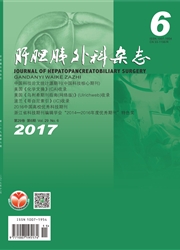

 中文摘要:
中文摘要:
脓毒症是由感染引起的全身炎症反应导致的器官功能障碍,严重者甚至可发展为多器官功能衰竭(MOF)。脓毒症起病过程常涉及炎性细胞过度活化、炎性因子过表达、免疫功能紊乱、组织器官损伤和细胞过度凋亡等。间充质干细胞(MSCs)具有抗炎、抗菌、免疫调节、组织器官修复再生及抗凋亡等特点,近年来大量临床前研究证明MSCs对脓毒症具有较好的治疗效果。本文对MSCs治疗脓毒症中的作用机制进行简要综述,并指出可能存在的临床挑战。
 英文摘要:
英文摘要:
Sepsis is defined as an organ dysfunction caused by systemic inflammatory response induced by infection, and may eventually developed into multiple organ failure (MOF). The onset of sepsis often involves the activation of inflammatory cells, over expression of inflammatory cytokines, immune dysfunction, damage of tissue and organ, excessive apoptosis of cell. Mesenchymal stem cells (MSCs) have a wide range of biological activities, including anti-inflammatory, antibacterial, immune regulation, regeneration and repair of tissue and organ, anti-apoptosis, etc. In recent years, a large number of preclinical studies had demonstrated that MSCs has good actions on sepsis. The purpose of this review is to describe the mechanism of MSCs in the treatment of sepsis, and to point out the possible clinical challenges.
 同期刊论文项目
同期刊论文项目
 同项目期刊论文
同项目期刊论文
 期刊信息
期刊信息
